Study: Georgia COVID-19 deaths to peak on April 23
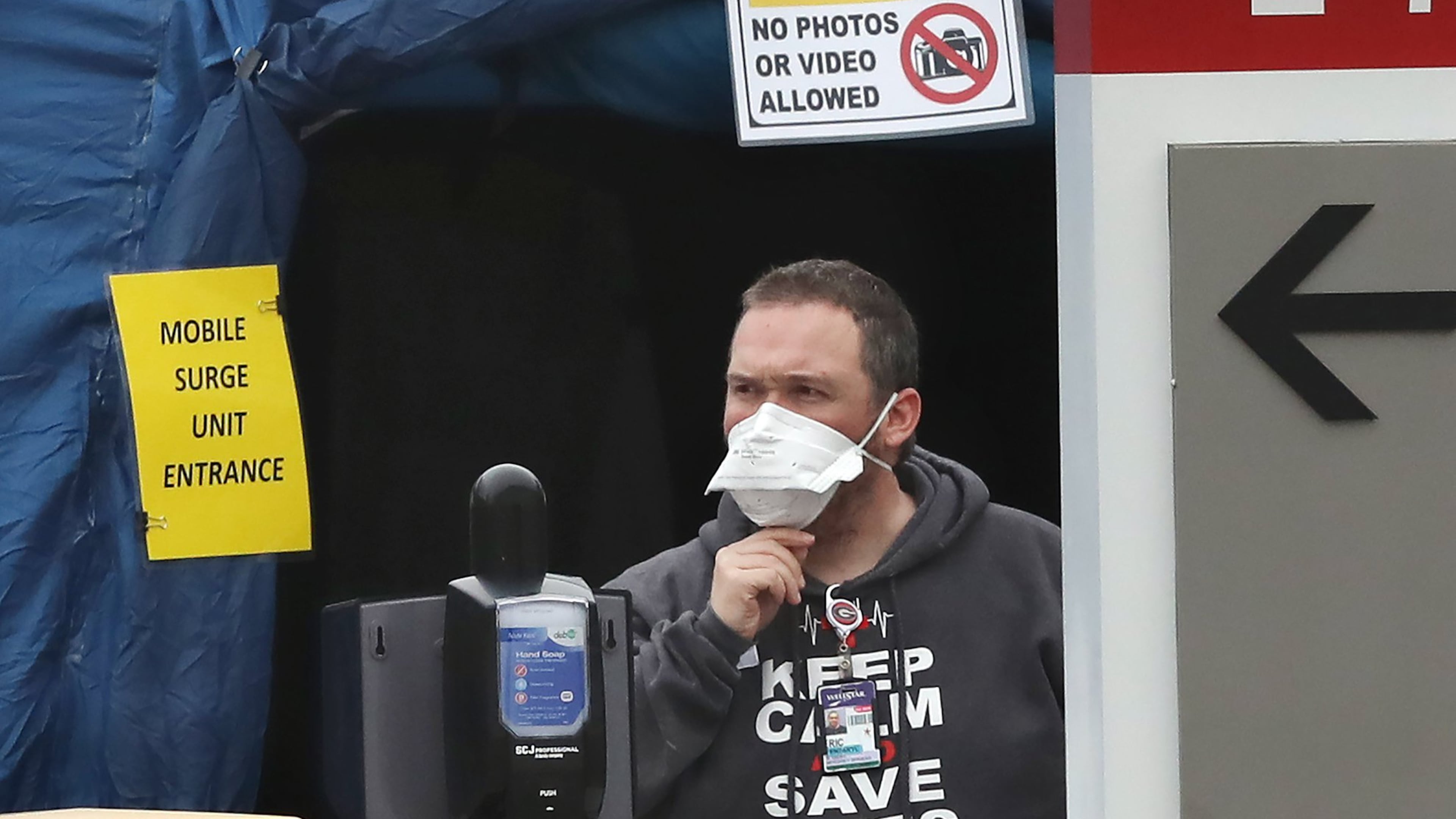
The number of COVID-19 deaths in Georgia should peak April 23, according to one model cited Monday by Emory infectious disease expert Dr. Carlos del Rio.
That means that coronavirus infections in the state will likely reach their highest point a few days before, according to del Rio.
» COMPLETE COVERAGE: Coronavirus in Georgia
If people hunker down during the upcoming month, stay at home as much as possible, and the state ramps up testing, del Rio said, “I really think by early May we’ll be fine.”
“I tell people my phrase is, let’s erase April,” he said. “The most important thing we can do is stay home. Staying home saves lives.”
At the same time, researchers need to move forward with clinical trials for a possible treatment and vaccine for COVID-19, the disease caused by the coronavirus, del Rio said.
On Monday, for the third day in a row, the number of new coronavirus cases slowed significantly in Georgia, even as deaths continued to climb, according to the latest data released by the Georgia Department of Public Health. There are now at least 2,809 confirmed cases of the virus statewide, according to the state public health agency. Eighty-seven Georgians have died from COVID-19.

In a conference call with reporters, del Rio, executive associate dean of Emory University School of Medicine at Grady Health System, said the estimated date for a peak in Georgia is based on predictions from the Institute for Health Metrics and Evaluation. It's "probably the best modeling group there is in the United States." he said.
The number of COVID-19 deaths in Georgia will peak on April 23 with an estimated 84 people dying on that day.
The IMHE predicts Georgia will also face a shortage of 755 ICU beds on April 22, which is considered the peak day for hospital resources needs.
» INTERACTIVE: Explore the IMHE's projections
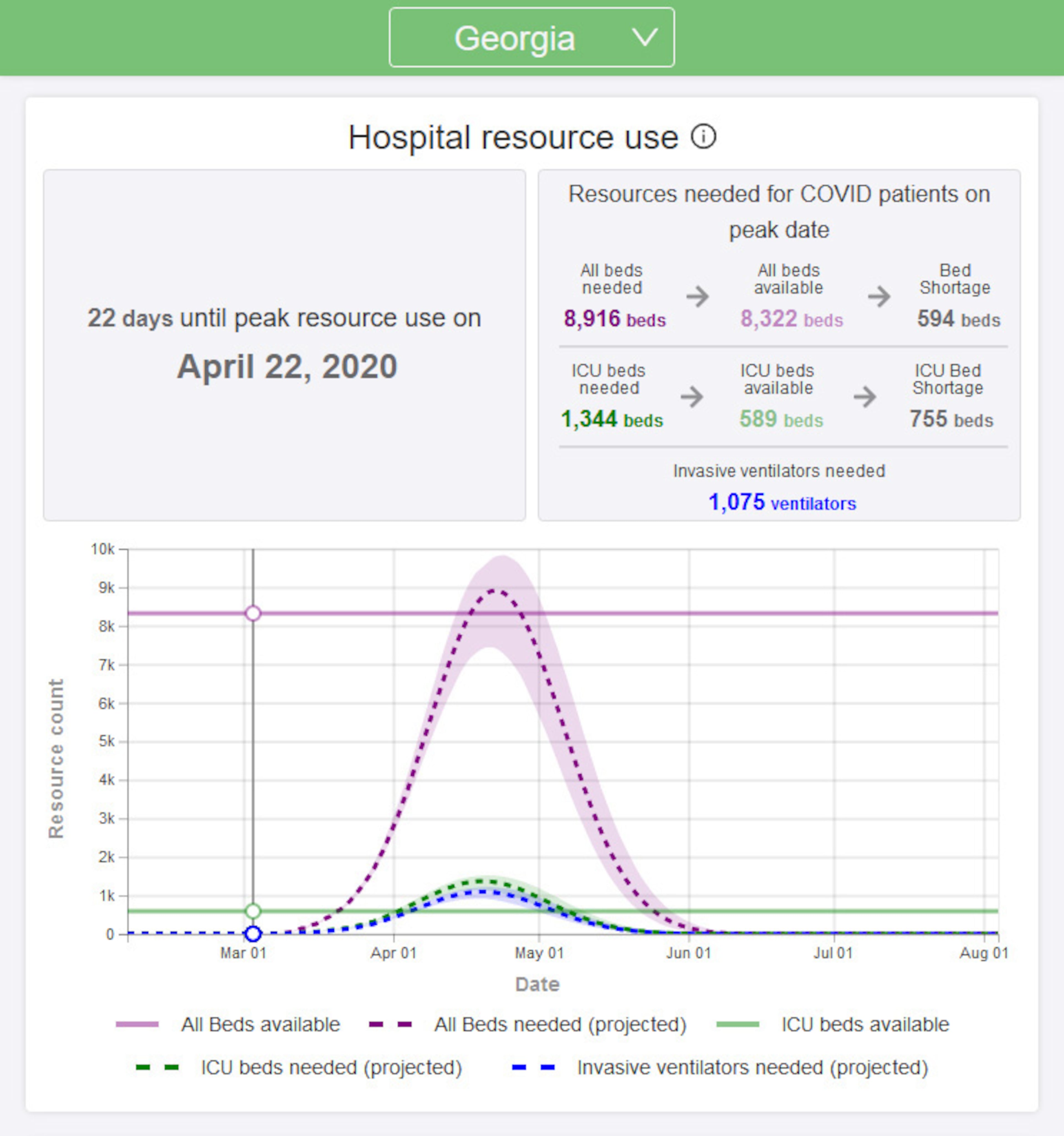
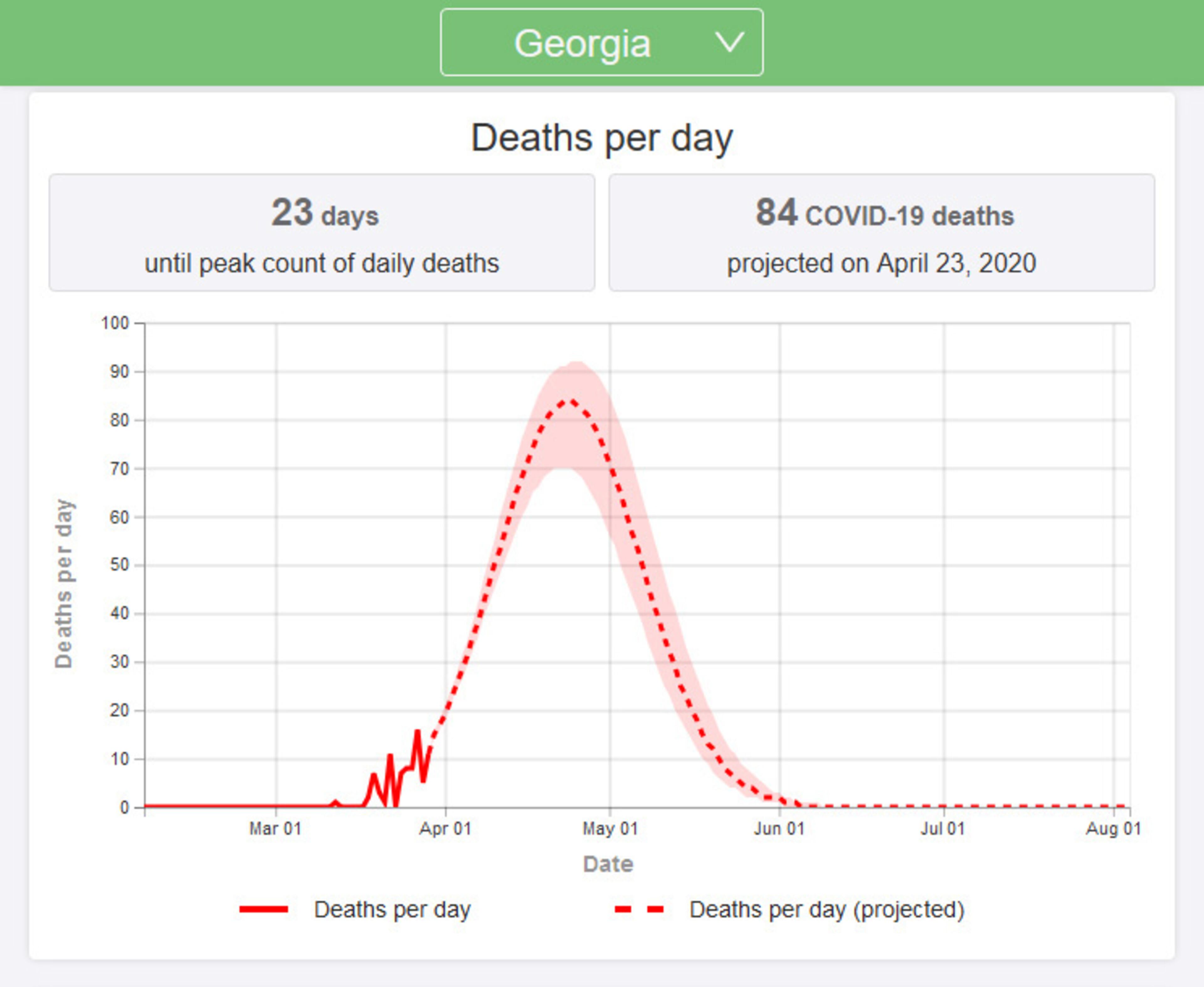
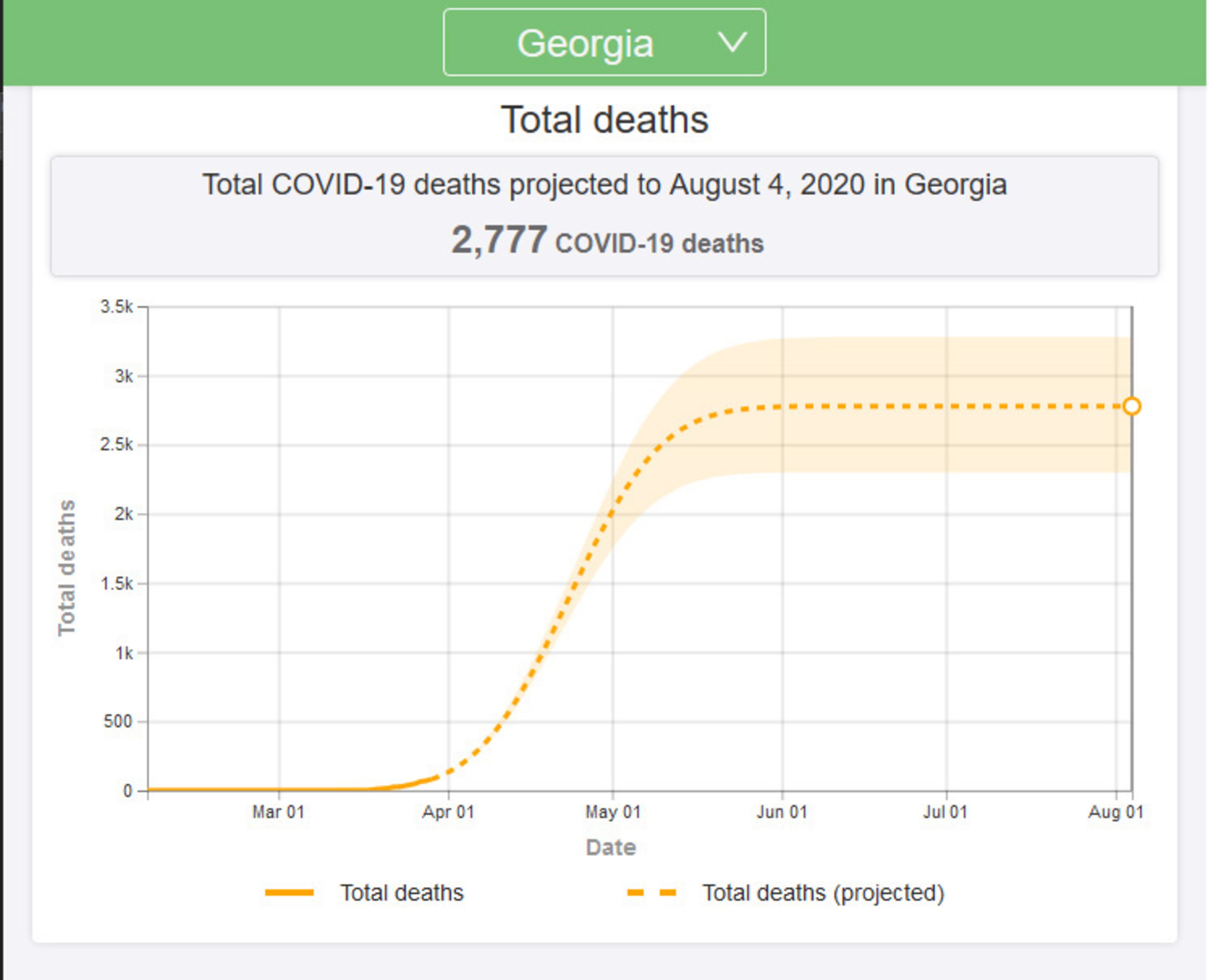
By the beginning of June, the state should be well on its road to recovery with the number of COVID-19 deaths predicted to fall to about one or two per day in the state, according to the IHME model. By June 9, no deaths per day are predicted for the state.
Throughout the course of the outbreak, the model predicts 2,777 total deaths in Georgia.
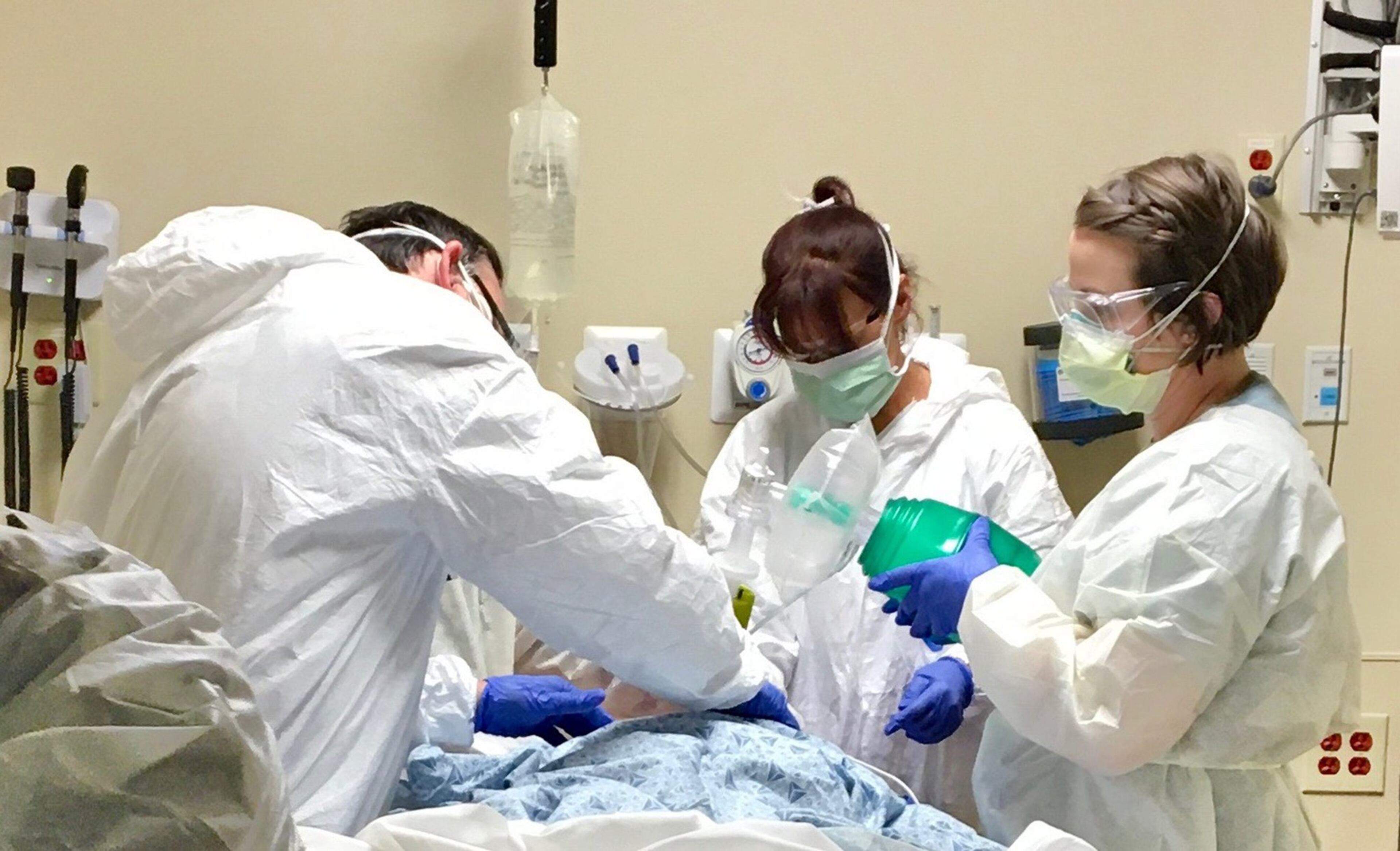
The Emory expert emphasized it’s important for young people to realize they play a critical role in stopping the spread of the respiratory illness. In talking to colleagues in Italy, it was clear that, early on, young people weren’t taking COVID-19 seriously. They continued to go out to bars and restaurants, and then brought the virus to family members, including their grandparents.
“And now, grandma and grandpa are dying,” he said. “If I am a young person and I get infected, I have to realize, it’s not about me. It’s about someone else.”



